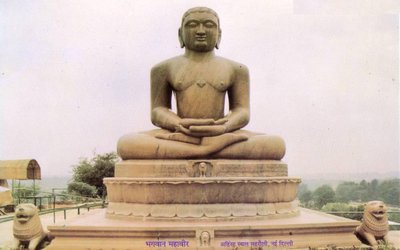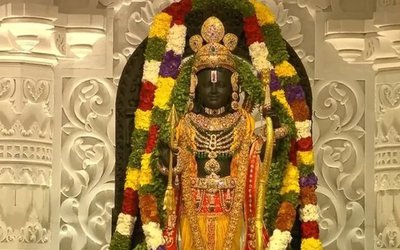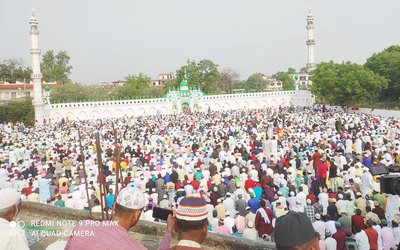
The Hindu festival Shivratri is one of the most prominent festivals dedicated to the Hindu deity, Lord Shiva. The celebration is held with great joy and devotion each year. Celebrated all over Nepal, Shivratri symbolizes victory, honesty and forgiveness. Nepal houses some of the best and most significant places devoted to Shiva where ardent devotees vow to visit at least once in their lifetime. It truly is an incredible celebration and a surreal experience.


The Pashupatinath Temple, Kathmandu: Lakhs of devotees from across the world flock to Shiva temples on this auspicious day. The Pashupatinath Temple in Kathmandu is the biggest temple dedicated to Lord Shiva and witnesses more than a million devotees on the eve of Shivratri. It is regarded as one of the holiest shrines among the Hindus. Tourists from across the globe gather here to observe the eccentric sadhu babas in a meditative state, praying to Lord Shiva. Pashupatinath is revered as the Guardian and Protector of the Kathmandu Valley and the whole of Nepal.

Rituals and beliefs: Mainly related to the night, devotees stay up the entire night chanting ‘Om Namah Shivaya’ and ‘Mahamritunjaya’, praying for the victory of light over darkness along with special pujas carried out all night long. They believe Lord Shiva to help them end bad habits and change their lives for the better. Devotees are also known to fast throughout this auspicious night and day.
General practices and temple arrangements: One could witness children going about collecting donations from passers-by. Individual preparations of a holy meal and bonfire are set up to celebrate the occasion of the festival. Some devotees are even eager to distribute food to everyone present on the temple premises. Exclusive attendance camps are also set up on the temple premises for the convenience of devotees and tourists.
Tourists often attend these proceedings with significant curiosity, as the colorful, naked sadhus meditate and interact with their disciples. Sadhus are holy men who have renounced all worldly pleasures. The Sadhu Babas hail from different parts of Nepal and India and make for a colorful crowd. Some are covered in ashes while some choose to remain entirely naked. Tourists are often intrigued by the different kinds of Sadhus and their activities. Some even travel from across the world to observe this unique and powerful phenomenon.
Significance of Shivratri in Nepal
Shivratri is a famous festival in Nepal and also one of the most celebrated religious festivals among the Hindus. It translates to “ the Great Night of Shiva”. Shiva is a prominent deity of the Hindu culture, who has worshippers from across the world. The backstory of this festival holds in the legacy of Shiva performing the Tandav, a cosmic dance. Shivratri is widely celebrated to worship Lord Shiva on this special occasion.
The festival also signifies the union of Lord Shiva and Shakti. Devotees believe that on this day, the stars in the Northern Hemisphere are aligned to their perfect positions to help increase their spiritual energy.
Managing the Crowd on Shivratri - Pashupati Area Development Trust (PADT)
The Pashupati Area Development Trust is expecting to host nearly 1.3 million people on the occasion of Shivratri. The management unit ensures the cleanliness of temple premises. They are also trying to implement new and effective ways to manage the enormous crowd to ensure that the devotees can learn about the Puja and Darshan smoothly. The passes for Pashupati Darshan are readily available at outlets near the Pashupati area. The PADT is also working towards managing a better parking facility and decent shelters and resting places for the devotees.
Where to Celebrate Shivratri in Nepal?
Celebrated with utmost enthusiasm and zeal, Shivratri is observed in all Shiva Temples across the country. Kathmandu is the leading site of these festivities, with the most important rituals and ceremonies happening at the Pashupatinath Temple.
Myths and Legends
Several mythological legends are related to the celebration of Shivratri. According to a legend, the Earth was grappling with imminent destruction when Goddess Parvati pleaded Lord Shiva to save the world. Pleased with her prayers, Lord Shiva agreed to save the world on one condition - the people of the Earth would have to worship him with absolute passion and dedication. It is this night that came to be known as Shivratri. The inhabitants of the Earth began to worship Lord Shiva with great enthusiasm and dedicated this special day to him. Another legend says that this day marks the wedding of Lord Shiva. Other folklore claims that when Goddess Parvati asked about his favorite day, Lord Shiva exclaimed with this day.



- Korean Embassy Hosts FRIENDS OF KOREA 2025 Event in Kathmandu
- Apr 19, 2025
- Weather Forecast: Partly To Generally Cloudy With Rain And Thunder Acrosss Nepal
- Apr 19, 2025
- Minister Dahal Directed To Complete The Dannune Portion Of Road Before Monsoon
- Apr 18, 2025
- Kanchenjunga Diamond Festival Being Celebrated From Today To Mark The 70th Anniversary Of The First Successful Ascent
- Apr 18, 2025
- RPP To Hold Protest In Restricted Areas Of Kathmandu On April 20
- Apr 18, 2025















